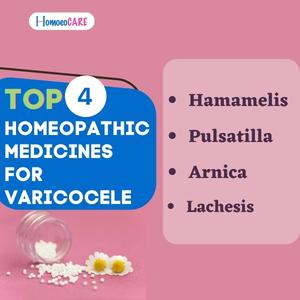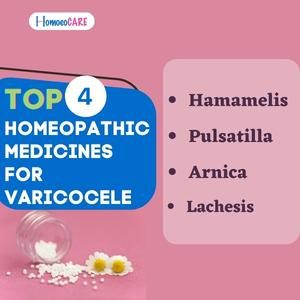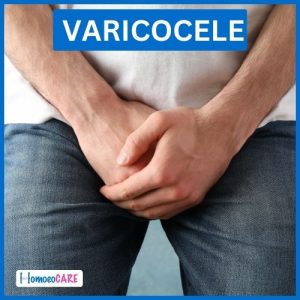Varicocele is a medical condition where the veins within the scrotum become enlarged and twisted, similar to varicose veins seen in the legs. This condition occurs when the valves inside the veins that regulate blood flow fail, causing blood to pool and the veins to expand. Varicoceles typically affect one side, usually the left, but can occur on both sides.
Varicoceles are classified into three grades based on their size and detectability:
The primary cause of varicocele is the malfunctioning of the valves inside the scrotal veins, leading to blood pooling. Several factors contribute to its development:
Varicocele is relatively common in India and affects many men. Early diagnosis and treatment are crucial for managing the condition effectively.
The most common conventional treatment for varicocele is varicocelectomy, a surgical procedure to remove or repair the affected veins. While effective, surgery carries risks. Some individuals may prefer to avoid surgery and opt for homeopathic treatment as a safer, non-invasive alternative.

Homeopathy offers a holistic approach to managing varicocele. Commonly used homeopathic remedies include:
At HomoeoCARE, we provide a comprehensive and personalized homeopathic approach to treat varicocele. Our experienced homeopathic doctors assess each case individually and develop treatment plans tailored to the patient’s specific needs. The goal is not only to relieve symptoms but also to promote overall health and enhance the quality of life.
Using classical Hahnemannian Homeopathy, we address the root cause of varicocele by strengthening the body’s natural defenses, providing lasting relief without side effects. HomoeoCARE emphasizes a patient-centric approach, ensuring personalized care and building trust through compassion and sensitivity.
For personalized care and effective homeopathic treatment for varicocele, consult with our expert team at HomoeoCARE. We are dedicated to providing a natural, safe, and effective solution to improve your condition.


Varicoceles are primarily caused by the dilation of the veins within the spermatic cord, which drains the testicles. This dilation is often due to faulty valves in the veins, leading to blood pooling and causing the veins to enlarge.
The 5 signs of varicocele are
Yes, Homeopathy is a medicinal system that addresses diseases by targeting their root causes. The primary cause of varicose veins is attributed to faulty valves within the veins. Homeopathic medicines work on fortifying the elastic walls, enhancing the strength of the valves, and restoring the elasticity of the walls. This process facilitates the repair of both the walls and valves, impeding the backflow of blood and gradually restoring proper flow to the distended veins, leading to the disappearance of varicose conditions.
Grade 3 varicoceles are dangerous as they can cause pain and also affect infertility. However, the symptoms of a varicocele can vary from person to person, and not all varicoceles cause significant problems.
One of the primary treatments of Varicocele is surgery. However, surgery has its own side effects and complications. If you are looking for a non-surgical option for treatment of varicocele then homeopathy is quite effective.
Grade I varicocele doesn’t require surgery and can be easily managed with homeopathic treatment
Yes, Homeopathic medicines are known to have a significant impact on varicocele and after a treatment for 6 months, the varicocele will disappear. Explore our case studies section, where we showcase successful treatments for grade 3 varicocele using homeopathy.
Grade 3 varicocele can occasionally be a serious concern, leading to symptoms such as pain and infertility. Explore our case studies section, where we showcase successful treatments for grade 3 varicocele using homeopathy.
While there is no specific diet proven to prevent varicoceles, maintaining a healthy lifestyle with a balanced diet, regular exercise, and avoiding excessive heat to the testicles may contribute to overall reproductive health.